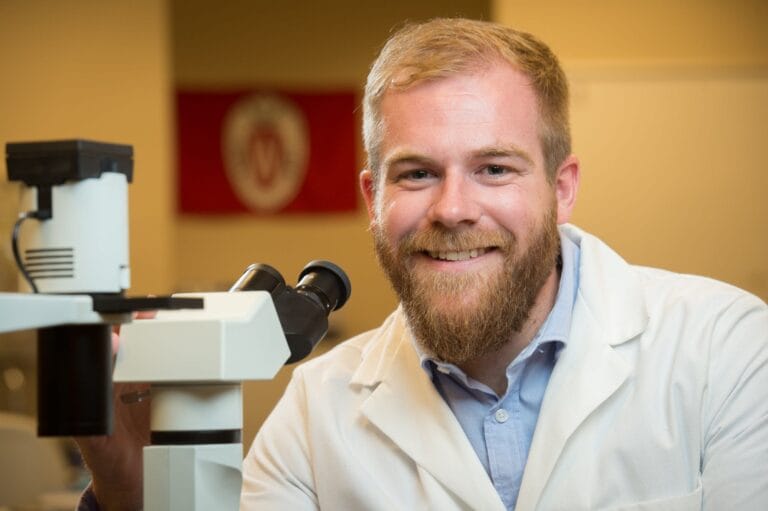
Online MS in Cartography and Geographic Information Systems helps GIS professional map his future
After getting his undergraduate degree in emergency management with a minor in Geographic Information Systems (GIS), Dwight Field landed a job with the Department of Military Affairs, Division of Wisconsin Emergency Management. Three years into his work experience, Field decided a master’s degree in GIS would help him advance in his career.
“Once I heard that the University of Wisconsin–Madison offered an online master’s in GIS, it was a no-brainer,” Field said. “An online program allows me to continue to work full-time. And I’ve always heard that UW–Madison has been ahead of the game in cartography and GIS.”
He enrolled in the Online Master of Science in Cartography and GIS, which allows working professionals in various fields—geography, engineering, health care, data journalism, natural and social sciences, and more—to advance their education, keep pace with technology, and learn new tools and techniques for web mapping and GIS application support.
UW–Madison advantages
“I chose UW–Madison because I’ve worked alongside many GIS professionals who attended their GIS programs, and all of them have had nothing but great words to say,” Field said. “During my undergrad degree, it was widely known that if you wanted to pursue your education in GIS, UW–Madison is a top choice.”

Field has found curriculum, instructors, and fellow students to be topnotch.
“I strongly recommend this master’s program because the curriculum is up-to-date with the job market,” he said. “In today’s world, a GIS professional should have an understanding of some type of coding and web development, and that’s exactly what this program is teaching.”
Already, Field has learned Python and HTML. It’s allowed him to enhance projects at his current job, where he serves as a radiological emergency preparedness program manager and GIS specialist.
“The instructors have been extremely helpful,” he said. “When it came to geocomputing, in which I had no coding background, the instructor would work around my schedule and have video conference sessions with me where I could share my screen so he could help guide me through lessons.”
Field adds that he likes the opportunities to collaborate with classmates through discussion boards and other platforms. “I really do enjoy the team environment the program has to offer,” he said.
Overcoming challenges of returning to school
Field found several obstacles in going back to get his master’s degree, but he’s faced them down.
He travels quite a bit in his current position as a GIS specialist, which often distracts him from attending to classes and homework. But with the Online Master of Science in Cartography and GIS, he can work ahead. Once students enroll, they are automatically provided online materials for an entire semester.
“And of course a challenge many college students face is student loans,” Field said. “When I initially graduated from college, I wasn’t planning financially for attending graduate school.”
But he’s applied for local scholarships, and his current employer is funding some of his schooling.
“Although there are plenty of challenges in returning to school, I’ve learned to manage them,” he said. “It’s easy to think that there’s no way you can add on an online master’s program, but I’m telling you—it’s doable. And the reward of graduating makes it all worth it.”
GIS stackable programs
Along with the Online Master of Science in Cartography and GIS, the UW–Madison GIS Professional Programs offers two online certificate programs—one basic and one advanced—and a face-to-face accelerated master’s degree.
- The GIS Fundamentals Capstone Certificateis for those who are interested in a career boost but have no background in GIS, mapmaking, or coding.
- The Advanced GIS Capstone Certificateis for people already working in GIS who want to take their skills to the next level.
- The Accelerated/Non-Thesis Master of Science in Cartography and GISis for anyone seeking an advanced degree from UW–Madison’s top-ranked Department of Geography.
All four GIS professional programs allow students to earn exactly the credentials they need, in a format that suits their career goals. They can earn a certificate in as little as one semester and stop there, or transfer these credits into one of the GIS master’s programs. The master’s degrees have a lifelong learning component, in which alumni gain access to lab updates to continually sharpen their skills.
“The online master’s will without a doubt help me in my career field,” Field said. “The new skillsets that I will obtain from the program will be essential in climbing the ladder in GIS.”
For more information, see the GIS Professional Programs website or contact Ian Muehlenhaus at [email protected].



